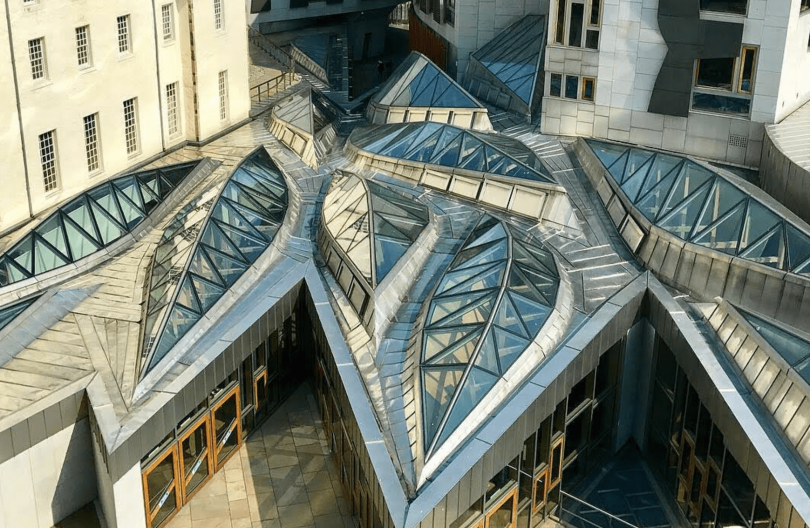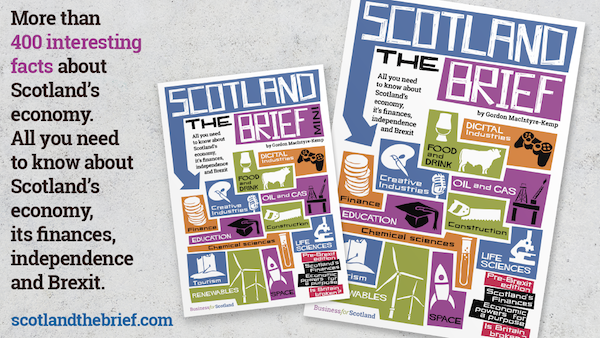It is clear that independence for Scotland would mean that the Governance of Scotland, in terms of which parliament would hold sovereignty, would change. Indeed, that is the whole point of independence: the idea that Scotland will be wholly governed by a political party that is selected solely by the people of Scotland. A Scottish Government of any colour, making decisions based on the needs of Scotland, will always make better decisions for Scotland than a parliament based in, and making its decisions based on the needs of another country.
Most people assume it will be the SNP, in its current form, that would run an independent Scotland for the foreseeable future, but that might not be the case.
Independence will inevitably lead to an evolution of politics, democracy and governance in Scotland. But who will run an independent Scotland? In simple terms, the answer is whomever Scotland chooses, because the party/politicians elected by the people of Scotland will run the nation.
What party will win elections following independence is impossible to predict with any certainty. All I can offer, therefore, is my own opinion as a long-term observer and commentator on Scottish politics.
Let’s put aside for a moment the fact that no one can be guaranteed that their preferred political party will run Scotland if it becomes independent, any more than they can guarantee their choice of political party will run the UK if it doesn’t. In fact, if Scotland becomes independent, the political parties that stand for election to the Scottish Parliament in the second and third Scottish General Elections and ongoing may not even exist today.
The Scottish National Party (SNP) have formed the last three Scottish Governments. Its popularity is largely based on the fact that it is a broad-church movement and possess elected politicians who sit both to the right and left of the centre. This means that they have an electoral advantage, in that they can field candidates that can take on what would be considered safe seats for both left and right wing parties simultaneously.
Political cohesion within the SNP, which you would think might be problematical, is held together by the unifying policy of support for independence. It is this broad-church approach, and a unique commitment amongst the major parties to the defining issue of the day, that has made them so successful and able to garner the support of voters from across the political spectrum. It is this very advantage that is almost certain to mean that the SNP will evolve over time into two separate political parties following independence.
- The unionist parties that opposed independence will also have to evolve and this will probably lead to renaming and reformation. This will probably result in two large parties in the medium term following independence:
- A centre-left party drawing support from a mix of current Labour and the centre-left voters of the SNP
- A centre-right party drawing support from former moderate conservative voters and the centre-right of the SNP
- Lib Dem support will probably break both ways and it is hard to see them surviving as a separate entity
- There may also be traditional socialist and right-wing parties and at least one that backs the UK. However, they will almost certainly be minor players and such parties are highly unlikely to survive into the second parliament of an independent Scotland
- Only the Scottish Green Party would be likely to remain largely unaffected by independence and it may well be able to pull in support from more environmentally concerned Labour, Lib Dem and SNP supporters. This would mean that they may hold the balance of power after independence, as they do now.
Do you agree that this is a likely scenario? If so, ask yourself who you would vote for if that scenario were to become reality? As many voters as then, as today, would be able to find a party they could support. The Government would be centrist/centre-left with a Green influence, as it is now, but with a focus on building a better Scotland, instead of partisan debate on the constitution, Brexit, and the need to mitigate decisions made by Westminster that don’t match Scottish values and spending priorities.
With different parties, significantly different personnel, and no constitutional issue to get in the way of collaborative working (which is what the Holyrood electoral system was designed to encourage), would there be an improvement in the performance of the Scottish Parliament and an increase in our levels of political governance? My own preference would be for the SNP, who will most likely win the first Scottish elections after independence, to lead a government of national unity in the first term after independence – that is to offer a few ministerial posts to partners outside the SNP that are willing to work for the betterment of Scotland. Swifter reconciliation will speed up the progress towards building a fairer, sustainable, more successful Scotland.
If you have considered not voting for independence because you don’t like the SNP, the Scottish Green Party or any particular politician, then this is the question you should be asking yourself. Is there any reason why Scotland wouldn’t thrive if it were governed as an independent nation by the party or combination of parties from the above list that you would vote for?
Conclusions on political Governance
As demonstrated in a previous post, “The UK versus an independent Scotland – which would be better governed?” , it is clear that Scottish voters want the Scottish Parliament to exercise far more power over its own destiny. Any advantage in this area that the Union may have possessed (in perception terms) during the 2014 referendum, has been undone by the Brexit vote. Brexit mismanagement has exposed the frailties and extremes of Westminster politics, whilst the Scottish Government and Parliament as a whole has grown in stature.
An independent Scotland will face some very manageable political and governance changes. There will be a period of transition, however, the changes will be for the better and more consistent with the wishes of the people of Scotland. The SNP, far from governing Scotland for eternity, which some people seem to think is their aim, will probably split into two parties with different names within a decade, but is that a bad thing?










Been trying to get this in to peoples heads for years. There will be no SNP after independence. It will exist in another name. Labour will exist and in my opinion will rise again to lead. All the rest of the parties will still exist. The only important thing is they will be Scottish parties.
The SNP are the best choice at present to get Scotland the right of self determination.
After we get independence we can vote for whoever’s the best party and/or candidate for our own constituency.
I think Scotland will remain slightly left of centre, but I could be wrong on that.
I annoys me when people say they will vote against independence, because they don’t like SNP or Nicola Sturgeon or Old Eck. My response is GET INDEPENDENCE DONE, then vote for who you prefer to run the country.
Scotland would not wish to end up like South Africa, run in perpetuity by the party whose claim to power is based entirely on its “heroic” place in the fight for independence. But I would guess the SNP is aware of this and, after five years or so in power, would start to leach members to the right and left of the spectrum, leading to “normal” politics in little more than a decade.
The question is based on a dodgy assumption that only one party will form the government.
I would suggest that after independence is achieved, an overall majority for any one party will be far less likely.
That’s is indeed all covered in the article – some people do mistakenly think that independence means SNP Governments forever, when in fact it would probably be the thing that makes the SNP split into several parties.
Reflects exactly what I have thought. I have to say to people who seem to think the SNP will be the party of government in and Independent Scotland that the parties we will have then probably don’t exist yet. I cannot see anything that is insurmountable at all once we are n charge of our own destiny. We will resolve whatever the issues are because we will be putting the energy into doing just that instead of wasting time having to deal with all the constitutional business as we do now. Cannot happen fast enough.
It’s a very careful and well thought through article and I certainly agree with most of it. Clearly, the SNP in an independent Scotland will have achieved its purpose and would need, at the very least, a change of name and, indeed, a new purpose perhaps along the lines of increased democratic control and deference to the sovereign wishes of the people of Scotland. In essence, using modern technology to make sure that those elected into power in parliament are totally answerable to the electorate. Finally, a question: How, when we can see who has won the lottery with the speed we expect, can’t we replicate this with a voting system we can have tomorrow?
I Really like the way you have put you r point over,and couldn’t agree more,we want to be a democracy,therefore,elections would have to be done.
An interesting contribution Gordon and thought provoking. Many folk like myself are so engrossed in getting Indy over the line, there has been little time to consider such practical matters. As a supporter of Labour most of my life and in recent years committed completely to the SNP and Scottish Independence, I see merit in your deliberations on how the existing Parties need to change. Many in the SNP will be more than happy to lose the existing name. The London based Unionists parties in my opinion will have no place in Scottish Politics. Accordingly, I hope all future Parties must be based, managed and funded in Scotland. Keep up the good work.